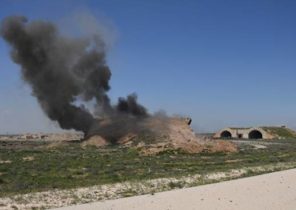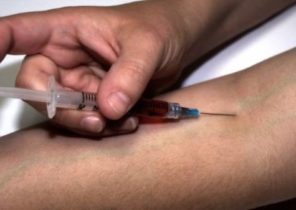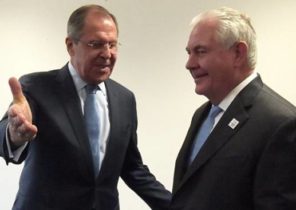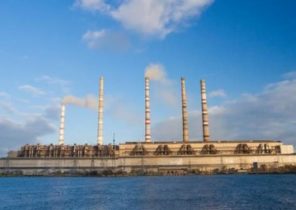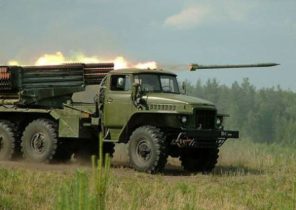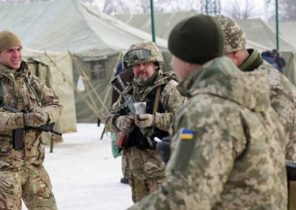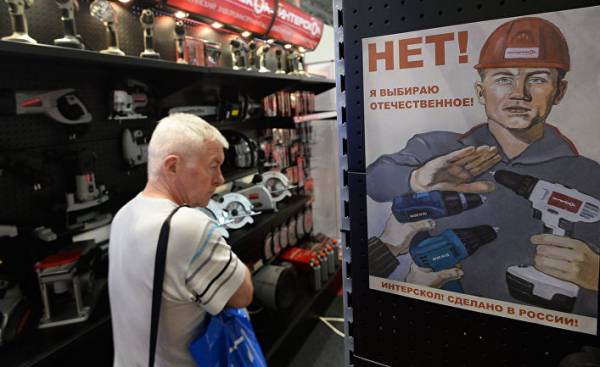
Donald trump can not determine the approach towards Russia. After repeated hints at the possibility of lifting the international sanctions imposed on Moscow following the annexation of Crimea and invasion of Eastern Ukraine, made by trump in the election campaign and transition period, trump came to power and began to show signs of doubt.
“It all depends on whether we will see changes in the behavior of Russia”, — said Vice-President of Pence on last month, in an interview with ABC News, saying that the administration wants to work with Moscow in the achievement of “common goals”, such as the destruction of LIH (banned in Russia as a terrorist organization — approx. transl.). Other officials, such as the US representative to the UN, Nikki Haley, has taken a markedly tougher stance, declaring that “the United States supports the people of Ukraine, nearly three years suffering under the yoke of Russian occupation and military invasion.”
Supporters of sanctions insist that they should continue until Russian President Vladimir Putin will not abandon its claims to Crimea and will not cease to interfere in the internal Affairs of Ukraine — the latter requirement was included in the Minsk agreement signed in September 2015 in Belarus and updated in February 2015. They worry that trump’s desire to negotiate with Putin will allow Russia to get rid of the sanctions in exchange for some other concession; for example, a new disarmament Treaty, which has already hinted us President — thus, Moscow will avoid responsibility for violation of norms of international conduct. Russia, for its part, had not shown any desire to resolve this issue and leaves the West to deal with it yourself.
Western observers and the representatives of the Kremlin agree on one thing: sanctions — a significant reason for the deteriorating economic situation in Russia. This view, however, misses one important fact: actually, the sanctions can harm Russia much less than it seems — it is possible that no harm from them at all.
Economic indicators are certainly dark. Russia’s GDP per capita decreased to the 2007 level. By the fall of 2016, the country’s GDP in dollar terms fell by 40% compared to GDP in 2013, and 15% if you count in rubles. The trouble is that the fall that had little relation to the Western sanctions, whose impact was political rather than economic.
The truth is that Western sanctions are concentrated on a small number of Russian companies such as construction giant “Stroytransgaz” and SMP Bank, owned by the coach of Vladimir Putin in judo Arkady Rotenberg; state-owned energy company Rosneft, managed by former Putin aide, Igor Sechin; and some well-known giants of the defense industry. These businesses can no longer borrow on international markets and to hold assets in Western countries. Also, Western sanctions do not provide a narrow list of persons from Russia to visit or to do business with these countries, and banned the import to Russia of dual-use technologies and equipment for oil exploration. It is only about 10 percent of the Russian economy — more importantly, due to excess liquidity in the Russian banking system all fall under the sanctions, companies can take the necessary sums from Russian banks.
In response to Western sanctions, Russia has adopted its own, largely limiting the import of food products. This has deprived the Russian middle class such delicacies as Parmesan, proscuitto, Norwegian salmon and Greek oranges.
Sanctions, however, did not deprive Russia of its role as an active participant in global economic relations. She remains a member of the WTO and the Asia-Pacific economic cooperation (APEC). Russia holds its reserves in the most liquid currencies and financial instruments. There are no restrictions on the implementation of its international monetary and trade translations. Against Russia and Russian companies had not taken such a hostile economic measures as protectionism or anti-dumping taxes.
Restrictions on loans could not harm the country, which worked to reduce its foreign debt for several preceding 2014. Despite the restriction of the importation of appropriate equipment, in the period between 2015 and 2016 the year of Russian production of oil and gas grew faster than in any of the Gulf countries and even the United States. In addition, Russia continues to export arms to $ 14 billion per year, remaining the third largest arms exporter in the world after USA and China.
Ultimately, the state of the Russian economy determines one factor: the price of oil. After oil prices came down, the Russian economy in General has returned to normal and went into a state of slow decline. Thus, it is not surprising that according to the world Bank sanctions reduced Russia’s GDP only half a percent. Even this modest estimate is likely to be excessive.
If Washington imposed sanctions much tougher, they could cause damage to Russia and force it to change course. The Russian elite dependent on the West, which they sell oil and gas, where they keep their assets and educate children. Targeted measures — for example, a ban on the sale and service of passenger and cargo aircraft, would put Russia on its knees in a matter of months. If its gold and currency reserves have been frozen, Russia would have been knee-deep in the problems for three or five years.
The sanctions have had a significant impact in one area: Russian domestic politics. State-controlled news, which include the majority of Russian news sources, laying the blame for the decline of the Russian economy on the United States and the European Union. 12 October 2016, Putin said at the investment forum VTB held in Moscow: “We often repeat like a mantra that the so-called notorious sanctions on us is not really affected. Affect. And above all, the threat I see to limit the transfer of technology”. Sanctions allow Putin to sow further discord between the people and opposition leaders who support the West and those who believe Western countries are the model for further development of Russia.
In addition, the sanctions demonstrated the risks associated with the transfer of assets offshore, and restricts the ability of the Russian elite to invest (or hide) their assets abroad, thereby giving Putin significant leverage for control over their own environment.
At the same time, a handful of Russian oligarchs and Kremlin-connected businessmen — mostly managers of public companies have successfully used sanctions to achieve comfortable transactions and control formed a monopoly on the sale of domestic products, always inferior in quality and overpriced and unreliable compared to driven out of the market commodity. Billions of rubles flowed from the budget in the pockets of a close Putin, who promised to rapidly develop the Russian analogs of Windows software, iPhone smartphones, GPS, computers, civil aviation and so on. The defense Ministry has already ordered a significant number of “Russian iPad”, cost $ 6,000 each. Gennady Timchenko, another longtime friend of Putin, monopolized the trade of salmon, raising prices more than 200% and turned its loss-making business in the fish trade in the incredibly profitable business.
In the end, sanctions have become the West of the trap. Their existence became for Putin in an additional source of support from the population, and they became the scapegoat for all his economic failures. However, their removal will be for the Russian regime as a sign that he was victorious in a deadly confrontation with the West. And for Donald trump any hint of sympathy for Russia, made in his current position, add weight to the statements of the Democrats on it too close with Moscow.
Caught in a no-win situation, the West is likely to be limited to inaction, leaving sanctions as is and freezing the situation. The Kremlin will be satisfied. Russia does not cease interference in Ukraine and return the Crimea. Mindlessly loyal supporters of the President will continue to walk the streets with placards asserting that “Putin again beat all” — and their words will be far from the truth.
